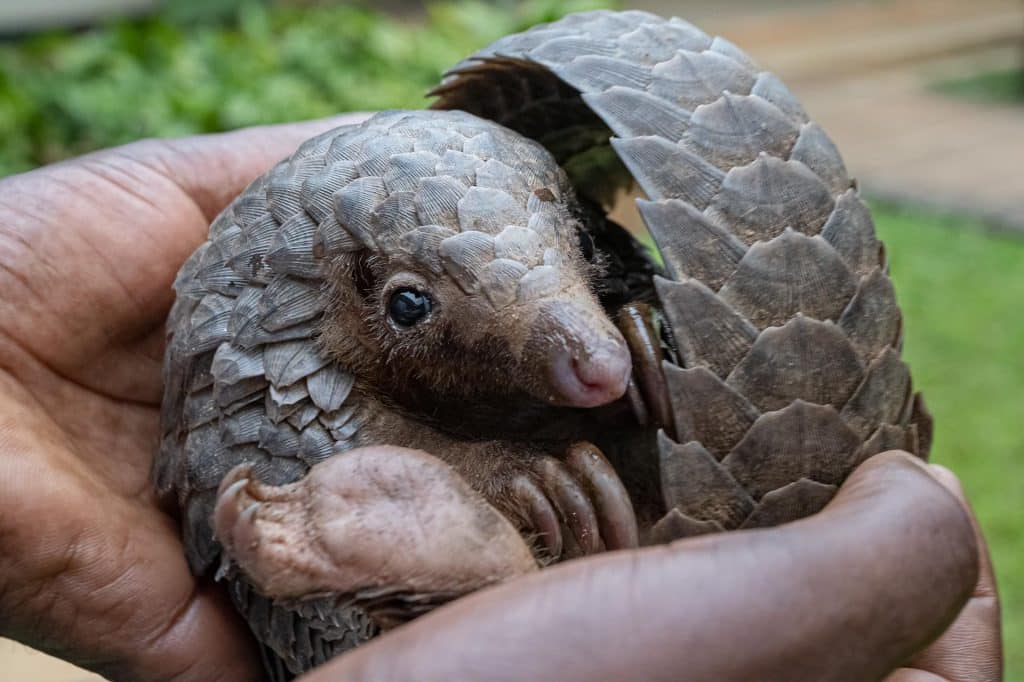Updated Joint Industry Guidelines for Combatting Illegal Wildlife Trafficking
Some 11 billion tonnes of goods traverse our seas in maritime trade each year through complex intermodal supply chains. Paired with ever-growing demands for just-in-time deliveries, there are significant weaknesses left open to be exploited by organised crime. Everyone in the supply chain has a role to play in stopping this criminal activity. That's why BIC is proud to co-sponsor two newly released documents to help build the necessary awareness.
Wildlife trafficking threatens biodiversity, devastates ecosystems, harms economies and specifically targets many already-endangered species for their rarity. It also harms security within our maritime supply chains and causes delays in shipments.
It is an industry-wide problem we must tackle together; that is why BIC is proud to co-sponsor the new Guidelines for Combatting Illegal Wildlife Trafficking. This document is a joint project led by the World Shipping Council; supported by UNDP, GEF and GWP; developed in collaboration with TRAFFIC and WWF, and co-sponsored by BIC, GSF and TT Club.
A Growing Problem
The illicit wildlife trade (IWT) generates an estimated £200 billion per year, sitting just behind counterfeit products, drugs and human trafficking as the fourth largest illegal trade in the world.
Shipping is a popular method for traffickers as it allows for the cost-effective transport of large numbers of animals or plants.
Ten Organisations Unite to Combat Illegal Wildlife Trafficking in Global Supply Chains
20 March 2024 – Wildlife crime continues to pose a significant threat to biodiversity, local and national economies, as well as national and international security. The illicit trafficking of wildlife not only endangers countless species but also undermines the stability of ecosystems and jeopardizes the livelihoods of communities worldwide. Recognising the severity of this issue, ten leading organisations have joined forces to combat illegal wildlife trafficking through increasing awareness and vigilance across global supply chains.
Maritime traffic, in particular, remains vulnerable to the trafficking of illegal goods. With the vast volume of trade carried by sea, the demand for faster, just-in-time deliveries and the increasing complexity of intermodal supply chains, criminals increasingly exploit weaknesses in global maritime supply chains to traffic contraband items.
Stepping up the fight against illegal wildlife trafficking, ten international organisations have joined forces in an initiative led by the World Shipping Council, supported by United Nations Development Program, the Global Environment Facility, and the Global Wildlife Program, in collaboration with TRAFFIC and WWF, and co-sponsored by BIC, Global Shippers Forum, the International Fund for Animal Welfare and TT Club. Together, they have produced practical guidelines for all supply chain participants, with advice on measures to take, questions to ask to help identify criminal wildlife trade, and guidance on reporting suspicious activities. An accompanying “Red Flags” document serves as a daily reference for all individuals involved in the supply chain.
Combatting illegal wildlife trafficking is a shared responsibility that requires collaboration across international containerized supply chains. All parties involved, especially consolidators and those receiving goods for packing or carriage, must take proactive steps to prevent the shipment of illegal wildlife. This includes verifying the legitimacy of cargoes, properly sealing shipments, conducting risk assessments, and promptly alerting national authorities to suspicious activities, as appropriate.
The Joint Industry Guidelines for Combatting Illegal Wildlife Trafficking are designed to support and further promote existing International Maritime Organisation (IMO) guidelines by providing specific and actionable guidance to private sector stakeholders, and the IMO was kept informed through the development process. The joint industry guidelines have been submitted to the IMO for additional awareness and action.
Illegal wildlife trafficking is not only decimating endangered species worldwide but also fuelling organized crime and threatening global security. The coalition’s joint effort underscores the shared responsibility of all stakeholders in combatting illegal wildlife trafficking. By uniting their expertise and resources, these organisations demonstrate their commitment to protecting wildlife and promoting sustainable trade practices.
